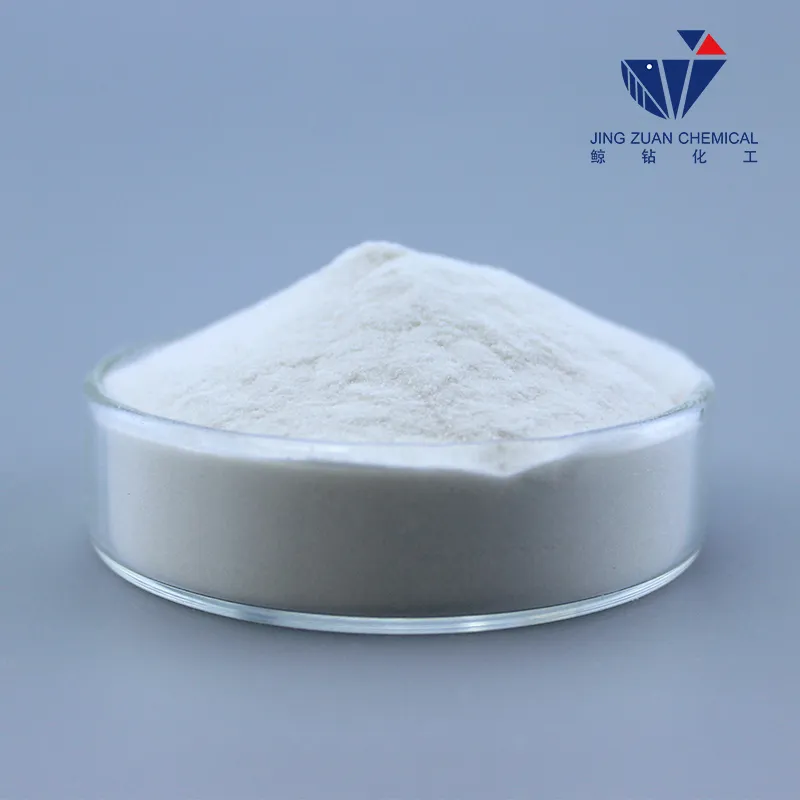
Aug . 19, 2024 04:36 Back to list
Exploring the Applications and Benefits of Hydroxyethyl Cellulose in Various Industries
Hydroxyethyl Cellulose An Overview
Hydroxyethyl cellulose (HEC) is a non-ionic, water-soluble polymer derived from cellulose, a natural polymer found in the cell walls of plants. This versatile polymer has gained significant attention in various industries due to its unique properties and functionalities. In this article, we will explore the structure, properties, applications, and benefits of hydroxyethyl cellulose, highlighting its importance in modern formulations.
At its core, hydroxyethyl cellulose is produced by the reaction of cellulose with ethylene oxide, which introduces hydroxyethyl groups into the cellulose chain. This modification enhances the solubility of cellulose in water, making HEC an ideal thickening agent, film former, and stabilizer. The process of hydroxyethylation results in a polymer that retains the beneficial properties of natural cellulose while offering improved solubility and rheological properties.
One of the most notable characteristics of HEC is its ability to form viscous solutions even at relatively low concentrations. This property makes it a popular choice in the formulation of products across multiple sectors, including cosmetics, pharmaceuticals, food, and construction. In the cosmetic industry, for instance, HEC is commonly used in creams, lotions, and shampoos, serving as a thickener that enhances product texture and stability. Its ability to retain moisture also makes it an effective ingredient in skincare formulations.
In the pharmaceutical field, hydroxyethyl cellulose is used as a viscosity-increasing agent and a binding agent in tablet formulations
. Its non-toxic nature and compatibility with various pharmaceutical excipients make it a reliable component in drug delivery systems. HEC is also utilized in ophthalmic preparations, where its moisturizing properties help to alleviate dry eyes.hydroxyethyl cellulose

The food industry has embraced HEC as a food additive, where it serves as a thickening and stabilizing agent in sauces, dressings, and processed foods. Its role in enhancing texture and mouthfeel is particularly valuable, as consumers increasingly seek products that provide a satisfying sensory experience.
In construction, hydroxyethyl cellulose is employed in cement and gypsum-based products, providing improved workability and water retention. This application is crucial for the integrity and longevity of building materials, as it prevents the rapid drying of mixes, ensuring better adhesion and reducing the risk of cracking.
The benefits of using hydroxyethyl cellulose are manifold. It is a biodegradable and environmentally friendly alternative to synthetic polymers, appealing to consumers and manufacturers who prioritize sustainability. Furthermore, HEC is stable across a wide range of pH levels and temperatures, which enhances its versatility in various formulations. Its non-ionic nature ensures compatibility with a wide array of substances, including surfactants and other polymers.
Despite its numerous advantages, it is essential to consider the appropriate grade of hydroxyethyl cellulose for specific applications, as its properties can vary based on molecular weight and substitution degree. This variability allows formulators to select HEC grades that best meet the desired performance criteria, ensuring optimal results in their applications.
In conclusion, hydroxyethyl cellulose stands out as a versatile and valuable ingredient in multiple industries due to its unique properties and functionalities. Whether used in cosmetics, pharmaceuticals, food, or construction, HEC enhances product performance and user experience. Its eco-friendly nature only adds to its appeal, positioning hydroxyethyl cellulose as a critical component in the development of innovative and sustainable formulations. As industries continue to evolve and strive for greener solutions, the role of hydroxyethyl cellulose will undoubtedly remain significant in meeting these demands.
-
Why HPMC is a Key Additive in Wall Putty Formulations
NewsAug.05,2025
-
Redispersible Powder in Decorative Renders: Function Meets Finish
NewsAug.05,2025
-
Redispersible Powder for Interior Wall Putty: Smooth Results Every Time
NewsAug.05,2025
-
HPMC’s Water Retention Capacity in Dry Mortar Applications
NewsAug.05,2025
-
HPMC Factory Contributions to Liquid Detergents
NewsAug.05,2025
-
How HPMC Factory Products Change Detergent Textures
NewsAug.05,2025







